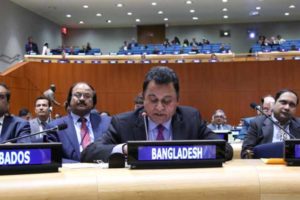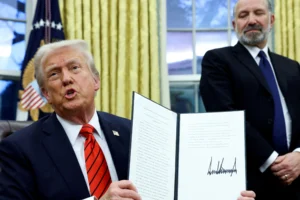The chief of one of Pakistan’s largest religious parties announced on Tuesday a protest campaign aimed at ousting Prime Minister Imran Khan, raising the prospect of political turmoil as the government struggles to stabilize the economy.
Fazl-ur-Rehman, leader of the conservative Jamiat Ulema-i-Islam-Fazl (JUI-F) party, said the government of cricketer-turned-politician Khan was “incompetent and illegitimate” and was installed by the military establishment after a rigged election last year.
“We have decided to march on Islamabad,” the heavily bearded Rehman told a news conference in the capital.
“Our basic demand is that the people who’ve got no right to rule should resign immediately.”
Khan won last year’s election on a promise to end corruption and help middle-class families but the economy is running into headwinds and the government in July agreed to a $6 billion bailout from the International Monetary Fund.
Khan rejects his critics’ accusations that he is backed by the military, which has a long record of intervention in politics. The military also denies any involvement in civilian politics.
Election authorities rejected opposition complaints of rigging in the 2018 vote.
Rehman is a veteran politician who heads an alliance with several seats in the National Assembly and provincial assemblies. But his real influence comes from his ability to mobilize support, particularly in numerous religious schools, or madrasas, across the country.
The main opposition parties of former prime ministers Nawaz Sharif and Benazir Bhutto have both said they would back Rehman’s campaign against Khan, though have also said they would not support any unconstitutional action.
The government has said it wants negotiations with the opposition while vowing that no one would be allowed to paralyze life in the capital.
“Only the state has the monopoly over violence,” Information Minister Firdous Ashiq Awan said on Monday, adding that it was not fair for the opposition to destabilize the country at a time of tension with old rival India over the disputed Kashmir region.
Pakistan has also been struggling to avert a balance of payments crisis and to prevent its debt from spiraling out of control.






















